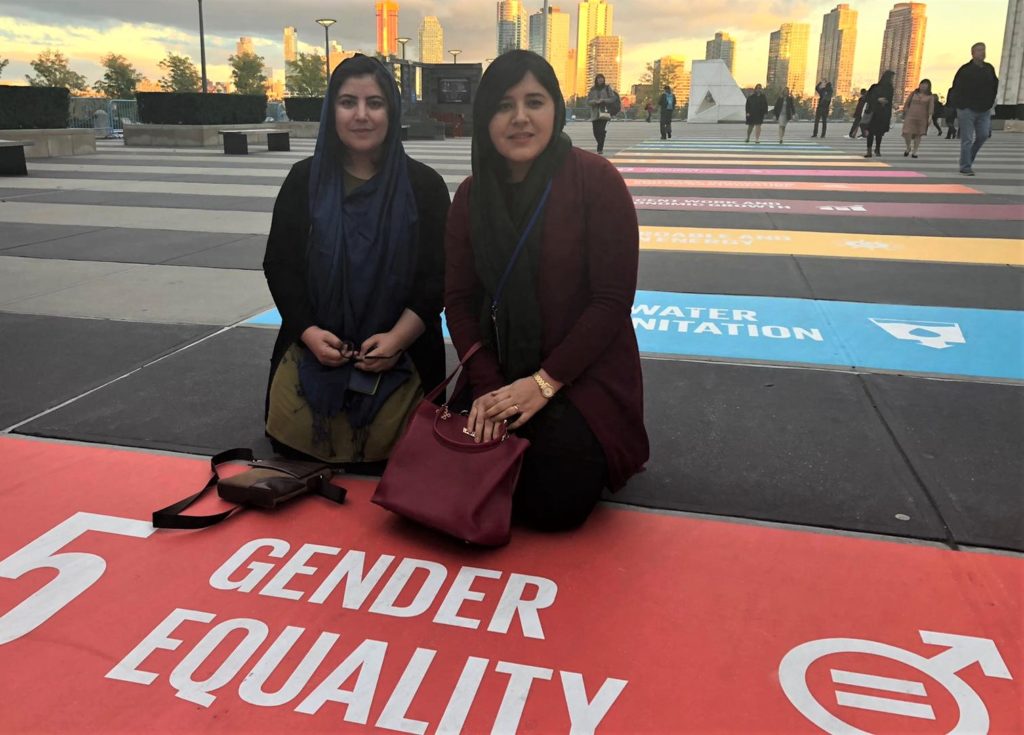After decades of conflict, Afghanistan has promising opportunities to negotiate a cease-fire between warring parties. However, “various stakeholders continue to obstruct an inclusive peace by disregarding the need to include women and undermining their meaningful participation,” says Storai Tapesh, of the Afghan Women’s Network, Cordaid’s longstanding partner in Afghanistan.

AWN works at the forefront of protecting women’s rights for political participation. With AWN, Cordaid advocates for conflict resolution that is gender-equitable, building on the progress of the last two decades.
“At the end of the day, it is us, women and men from Afghanistan who need to accomplish peace.”
AWN can rely on a long-lasting and diverse network, bringing together women from all 34 provinces. “It is critical that the participation at the negotiation table reflects the internal diversity of women in Afghanistan. This is why AWN brings women from different backgrounds together to find a common agenda,” explains Storai Tapesh, Deputy Director and Program Manager of AWN.
A US-Taliban deal is not a peace agreement
According to Tapesh “The path towards peace will be paved with obstacles”. Negotiating with the Taliban, for example, while being a necessity, remains a delicate undertaking. It is clear to AWN that the acceptance of the constitution, the involvement of the Afghan government, and an implemented ceasefire are important prerequisites for peace talks. “A US-Taliban deal remains vital as well but should not be seen as a peace agreement as such but as an important step towards peace negotiations among Afghan stakeholders. Despite these challenges, the people of Afghanistan are willing to find a solution that helps to overcome the long-lasting conflict and violence which has devastated Afghanistan for many years.”
Supporting an Afghan-owned peace process
The past years Cordaid has facilitated the political unification of women and advocated for their participation in peace processes.
“Our aim is to increase our efforts to ensure that women gain ownership of the Afghan peace-building process,” explains Nasima Omari, Cordaid Coordinator of the Strategic Partnership on Lobby and Advocacy in Afghanistan. “In the past, the unity of women was often undermined by international stakeholders who created parallel groups,” she says. “Instead, they should be supporting an Afghan-owned process in which local organizations are enabled to coordinate their engagement, independently of foreign interests. Our priority is to avoid that the coming peace talks are hijacked by external stakeholders. At the end of the day, it is us, women and men from Afghanistan who need to accomplish peace,” Omari concludes.
Promoting the Women, Peace and Security agenda
In the coming week, Cordaid and AWN will be lobbying at the United Nations in New York to ensure an inclusive and Afghan-led peace process that corresponds with the policies for the Women, Peace and Security agenda. Moreover, on Wednesday, October 30, we organize a policy forum on Supporting a durable and inclusive peace in Afghanistan: The role of Afghan women. The event is co-organised by The International Peace Institute, the Georgetown Institute for Women, Peace, and Security, and the NYU Center for Global Affairs.
“It is critical that the participation at the negotiation table reflects the internal diversity of women in Afghanistan.”
While much progress has been made in the last decades regarding the inclusion of Afghan women in political decision-making, progress towards gender equality remains fragile. The Afghan peace process is a decisive point in these wider development processes and requires all parties – local, national, and international – to remain committed to the ideals of the Women, Peace, and Security agenda. We need to ensure that women in Afghanistan can raise their voices safely and participate meaningfully during peacebuilding at all levels.